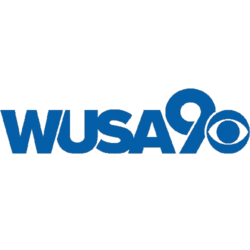COVID-19 Briefing: Getting Transportation Back on Track
Our economic recovery will depend on a robust, functional transportation system—and that system is currently in financial jeopardy as would-be travelers stay home. In this virtual conversation, Tom Dohrmann, cofounder and lead of McKinsey & Company’s Public Sector Practice, shares analysis from McKinsey on national trends. He then moderates a conversation with Paul Wiedefeld, General Manager and CEO of WMATA; Ricky Smith, Executive Director of BWI Thurgood Marshall Airport; and Jack Potter, President and CEO of the Metropolitan Washington Airports Authority (MWAA).
Watch the recording
Read the summary
On current passenger numbers and facility operations
The pandemic has stopped most travel in its tracks—a much larger reduction in travel than after the terrorist attacks of September 11, 2001 or the financial crisis of 2008, according to analysis from McKinsey. The panelists confirmed that Metro and all three regional airports are currently only serving a fraction of their normal number of passengers. Metro rail is down 94%, Metro Bus is down 74%, BWI is down 92% (which is actually up from 97% last week) and MWAA’s airports, Regan National and Dulles International, are down 97%.
The dramatic reduction in riders and passengers combined with social distancing requirements has changed operations at Metro and the airports. Trains are now running less frequently, most stores in the airports are closed, masks are required or strongly encouraged, and Plexiglas dividers have been installed on busses and throughout the airports to protect bus drivers and other workers who interface with the public.
Ricky Smith, Executive Director of BWI Thurgood Marshall Airport, noted that airports are a part of a national and international network and are therefore only as safe as the airports they connect to. Therefore, a consistent, national approach to airport sanitation and operations is needed. FAA and TSA are exploring a system-wide plan now.
On cash flow and capital investments
Revenue has obviously taken a nose-dive for Metro and the airports. Metro is projecting $800 million in losses through 2021. Paul Wiedefeld, General Manager and CEO of WMATA, noted that Metro is attempting to maximize funding from the CARES Act so that it depends less on DC, MD, and VA, which are also facing budget crises.
Jack Potter, President and CEO of the Metropolitan Washington Airports Authority (MWAA), explained that most airports have very large debt burdens—up to 40% of their costs are servicing debt. The airports will therefore dip into the net remaining revenue carried over from previous years to meet this obligation. CARES Act funds are also helping.
Despite financial woes, Metro and the airports are continuing to make investments in their facilities to keep them functional and safe. Though some capital investments projects have been put off due to financial restrictions, many are moving forward as planned—and in fact, the reduction in travelers is allowing some projects to move forward more quickly than they would have under normal conditions. Paul Weidefeld said that Metro is moving forward with phase two of the Silver Line and the platform repairs west of Ballston.
Forecasts for the fall and beyond
Jack Potter said that MWAA projects that air travel will be back to 50% of what is considered normal by the end of 2020. They are modeling numerous scenarios for 2021, from a healthy rebound with 80-90% recovery to a sluggish, 30-50% recovery. He said that they are attempting to be flexible, to continually research and analyze, and avoid the temptation to rush to conclusions.
Paul Weidefeld acknowledged that Metro riders must feel safe if they are to return to taking the metro. He noted that Metro cleaning crews are now cleaning during the day, an activity usually reserved for the night, so that riders see the work being done in front of them. Metro will also enforce mask use and will try to limit the number of riders so that everyone can practice social distancing. He asked that employers with workers who are working from home bring those workers back to an office setting gradually so that Metro is not overwhelmed with too many riders to safely serve.
Become a member today
We need your voice at the table to make Greater Washington a place where everyone can succeed



















